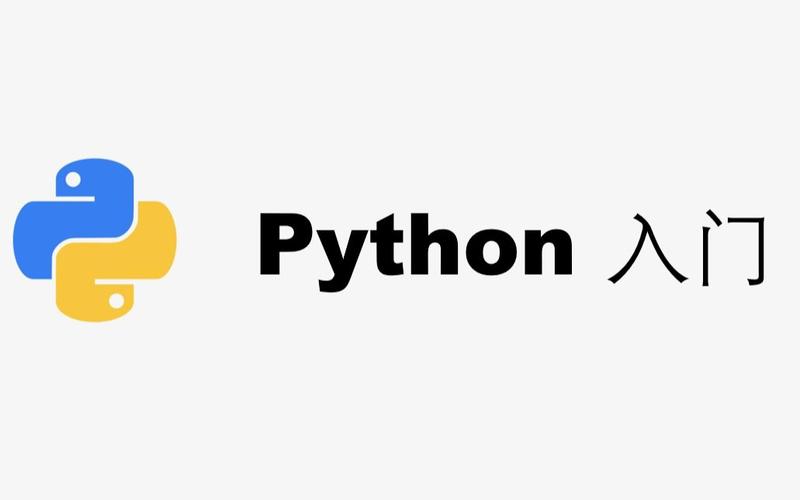Python判断字符串是否以特定字符开头
时间:2025-04-26 20:47:27 310浏览 收藏
在Python中,判断字符串是否以特定字符开头可以使用`str.startswith()`方法。该方法支持检查单个或多个前缀,并允许指定索引范围进行子串检查。此外,结合`endswith()`方法可用于文件名验证,而通过`lower()`或`upper()`方法可以实现大小写不敏感的检查。`startswith()`方法简单高效,适用于文件处理、数据清洗和用户输入验证等场景。
在Python中,判断字符串是否以特定字符开头使用str.startswith()方法。1) 可以检查单个或多个前缀;2) 支持指定索引范围;3) 结合endswith()用于文件名验证;4) 使用lower()或upper()方法可进行大小写不敏感检查。

在Python中判断字符串是否以特定字符开头,可以使用str.startswith()方法。让我们深入探讨一下这个方法的用法和一些实际应用场景。
在Python中,我们经常需要处理字符串,而判断字符串是否以特定字符或子串开头是常见的需求。startswith()方法就是为此而设计的,它不仅简单易用,而且非常高效。
让我们来看一个简单的例子:
text = "Hello, World!"
if text.startswith("Hello"):
print("The string starts with 'Hello'")
else:
print("The string does not start with 'Hello'")这个代码片段会输出"The string starts with 'Hello'",因为字符串确实是以"Hello"开头的。
现在,让我们深入探讨一下startswith()方法的更多细节和应用场景。
首先,startswith()方法可以接受一个或多个前缀作为参数。如果是多个前缀,它会检查字符串是否以其中任何一个开头。例如:
text = "Hello, World!"
if text.startswith(("Hello", "Hi")):
print("The string starts with 'Hello' or 'Hi'")
else:
print("The string does not start with 'Hello' or 'Hi'")这个例子会输出"The string starts with 'Hello' or 'Hi'",因为"Hello"是有效的前缀之一。
此外,startswith()方法还可以指定开始和结束的索引,这样可以检查字符串的某个子串是否以特定字符开头。例如:
text = "Hello, World!"
if text.startswith("llo", 2, 5):
print("The substring from index 2 to 5 starts with 'llo'")
else:
print("The substring from index 2 to 5 does not start with 'llo'")这个例子会输出"The substring from index 2 to 5 starts with 'llo'",因为从索引2到5的子串确实是以"llo"开头的。
在实际应用中,startswith()方法非常有用,比如在文件处理、数据清洗、用户输入验证等场景中。例如,在处理文件名时,你可能需要检查文件是否以特定的扩展名结尾:
filename = "example.txt"
if filename.startswith("example") and filename.endswith(".txt"):
print("This is a valid text file")
else:
print("This is not a valid text file")这个例子展示了如何结合startswith()和endswith()方法来验证文件名是否符合特定格式。
然而,使用startswith()方法时也需要注意一些潜在的陷阱。例如,如果你不小心使用了大写或小写字母,而字符串中是另一种形式的字母,那么检查将会失败。为了避免这种情况,你可以先将字符串和前缀都转换为小写或大写:
text = "HELLO, World!"
if text.lower().startswith("hello"):
print("The string starts with 'hello' (case-insensitive)")
else:
print("The string does not start with 'hello' (case-insensitive)")这个例子会输出"The string starts with 'hello' (case-insensitive')",因为我们使用了lower()方法来进行大小写不敏感的检查。
总的来说,startswith()方法是Python中一个非常强大的工具,它可以帮助我们高效地处理字符串的前缀匹配问题。在使用时,注意大小写敏感性和索引范围的使用,可以让你的代码更加健壮和灵活。
文中关于前缀,str.startswith(),索引范围,endswith(),大小写不敏感的知识介绍,希望对你的学习有所帮助!若是受益匪浅,那就动动鼠标收藏这篇《Python判断字符串是否以特定字符开头》文章吧,也可关注golang学习网公众号了解相关技术文章。
-
501 收藏
-
501 收藏
-
501 收藏
-
501 收藏
-
501 收藏
-
202 收藏
-
203 收藏
-
176 收藏
-
366 收藏
-
330 收藏
-
402 收藏
-
353 收藏
-
343 收藏
-
198 收藏
-
138 收藏
-
301 收藏
-
320 收藏
-

- 前端进阶之JavaScript设计模式
- 设计模式是开发人员在软件开发过程中面临一般问题时的解决方案,代表了最佳的实践。本课程的主打内容包括JS常见设计模式以及具体应用场景,打造一站式知识长龙服务,适合有JS基础的同学学习。
- 立即学习 543次学习
-

- GO语言核心编程课程
- 本课程采用真实案例,全面具体可落地,从理论到实践,一步一步将GO核心编程技术、编程思想、底层实现融会贯通,使学习者贴近时代脉搏,做IT互联网时代的弄潮儿。
- 立即学习 516次学习
-

- 简单聊聊mysql8与网络通信
- 如有问题加微信:Le-studyg;在课程中,我们将首先介绍MySQL8的新特性,包括性能优化、安全增强、新数据类型等,帮助学生快速熟悉MySQL8的最新功能。接着,我们将深入解析MySQL的网络通信机制,包括协议、连接管理、数据传输等,让
- 立即学习 500次学习
-

- JavaScript正则表达式基础与实战
- 在任何一门编程语言中,正则表达式,都是一项重要的知识,它提供了高效的字符串匹配与捕获机制,可以极大的简化程序设计。
- 立即学习 487次学习
-

- 从零制作响应式网站—Grid布局
- 本系列教程将展示从零制作一个假想的网络科技公司官网,分为导航,轮播,关于我们,成功案例,服务流程,团队介绍,数据部分,公司动态,底部信息等内容区块。网站整体采用CSSGrid布局,支持响应式,有流畅过渡和展现动画。
- 立即学习 485次学习

